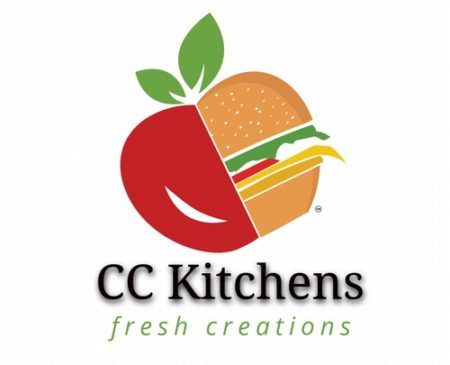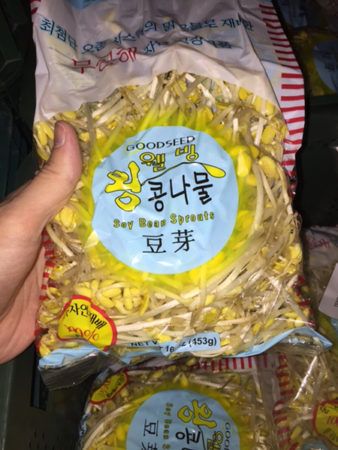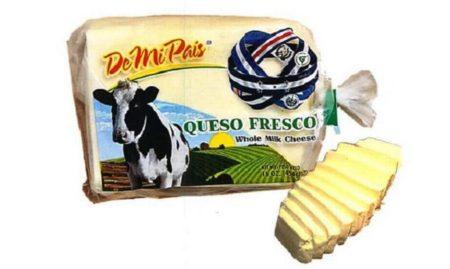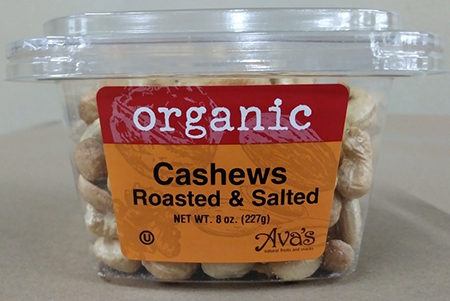More Recalls Caused by Fear of Listeria monocytogenes Contamination
 Listeria monocytogenes was a major reason for recalls according to “summary of recall cases in Calendar Year 2016”, by the FSIS/USDA, accounting for over 80% of the total recall cases.
Listeria monocytogenes was a major reason for recalls according to “summary of recall cases in Calendar Year 2016”, by the FSIS/USDA, accounting for over 80% of the total recall cases.
Food Safety Tech reported that in 2016 in the US, close to 550 food products were recalled, and around 275 were recalled due to microbial contamination. Listeria monocytogenes was the cause of 65% of the microbiological recalls. In the last few weeks, a number of products were recalled caused by fear of Listeria monocytogenes contamination.
Club Chef LLC (Castellini Group subsidiaries)
According to the FDA, Club Chef LLC recalled fresh cut produce and retail Snack Kits, due to potential contamination with Listeria.
Although Listeria was discovered by the company in only a small portion of their facility during internal environmental monitoring, they decided to recall the product as a proactive step. None of the company products was found to be actually contaminated, and no illnesses were reported.
The following States are potentially impacted by this recall: South Carolina, Georgia, Alabama, Indiana, Illinois, Missouri, Ohio, Kentucky, West Virginia, Tennessee, Mississippi, Arkansas, Virginia, North Carolina and Michigan.
Further recalls, however, were initiated because Chef Club distributed their lettuce to other manufacturers that included the lettuce as an ingredient.
CC Kitchen LLC Recall
According to the FDA CC Kitchens (Cincinnati, OH) recalled ready-to-eat meat and poultry salad products, including salad and slaw kit, because Listeria was found to be present in the processing environment of certain leafy greens. None of these products were found contaminated, nor have any illnesses been reported. Rather, the recall was initiated by the processor in an abundance of caution.
Since the ready-to-eat meat and poultry salad items also contain meat products, there was an announcement also by FSIS/USDA . CC Kitchens was notified by one of their lettuce suppliers (Club Chef, see above) that the lettuce used in their products was recalled as a precautionary action because Listeria was found during environmental testing of parts of their facility.
2,415 pounds of the recalled ready-to-eat meat and poultry lettuce salads were distributed by Kroger in Ohio, Michigan, and West Virginia.
The CC Kitchens recalled products are clamshells of Chef Salad, Chicken & Bacon Cobb Salad, Chef Side Salad, Garden Salad and Chicken & Bacon Cobb Side Salad with sell-by dates between June 5 and June 10.
Additional products affected are Fiesta Slaw, Trail Slaw Kit, and Asian Quinoa Salad Kit products with sell-by dates between June 7 and June 11. Also affected are Beef Ponzu Kit items with sell-by dates June 7 and June 8 and Southwest Turkey Salad Kit items with sell-by dates of June 8 or June 10.
In this case, two government agencies are involved: FDA has jurisdiction over the lettuce and FSIS/USDA over the meat products.
Happy Sprout Inc.
According to the FDA Happy Sprout Inc. of Springfield, VA is voluntarily recalling all packages of Soybean Sprouts because they have the potential to be contaminated with Listeria monocytogenes. These items were distributed to retail stores in Virginia, Maryland and New Jersey.
The possible contamination was noted after routine surveillance sampling by the Food Safety program of the Virginia Department of Agriculture’s Food Safety. Consequent testing by the Virginia Division of Consolidated Laboratory Services revealed the presence of Listeria monocytogenes in sampled product. No illnesses have been reported to date.
Global Garlic Inc. Recalls “Queso Freso/Whole Milk Cheese”
The FDA announced that Global Garlic Inc from Miami, FL, recalled 16oz packages of “Queso Fresco/ Whole Milk” and (“Queso Fresco x LB(Barra)/Whole Milk Cheese” because of potential to be contaminated with Listeria monocytogenes. This is an expansion of the original recall of De Mi Pais Queso Fresco/Whole Milk cheeses.
Routine testing by the Florida Department of Agriculture Consumer Services found Listeria monocytogenes in 16-ounce packages of “Queso Fresco/ Whole Milk Cheese”.
The cheeses were sold to retail stores in Florida, Kentucky, Illinois, Louisiana, North Carolina and South Carolina. The cheese in the original recall went only to retail stores in Fort Lauderdale and Fairdale, Kentucky.
According to the FDA, the production of the product has been suspended while the FDA and the company continue to investigate the source of the problem
Ava’s Brand Organic Cashews Roasted & Salted 8 oz. Tubs
 According to the FDA Hampton Farms has voluntarily recalled Ava’s brand Organic Cashews Roasted & Salted 8 oz. tubs distributed in New Jersey, New York, Pennsylvania, and Connecticut. The company has been notified by their cashew supplier of the potential contamination with Listeria monocytogenes.
According to the FDA Hampton Farms has voluntarily recalled Ava’s brand Organic Cashews Roasted & Salted 8 oz. tubs distributed in New Jersey, New York, Pennsylvania, and Connecticut. The company has been notified by their cashew supplier of the potential contamination with Listeria monocytogenes.
Routine sampling of a different item from another company revealed the presence of Listeria monocytogenes. This resulted in an investigation of their manufacturing environment, revealing contaminated piece of equipment that was also used to produce the ingredient.
Although the cashew nuts were negative for Listeria, and no illness was reported, the company decided to recall the product in abundance of caution. All affected distributors and retail stores have been notified and the affected products are being removed from store shelves. Fewer than 225 units of this product were offered for retail sale.
Why are there so many Recalls?
It appears as if there are more and more recalls due to Listeria while the actual Listeriosis cases are declining. Despite the spike in recalls due to Listeria, a relatively small number of people had actually gotten ill. Actually, the number of Listeriosis cases has dropped dramatically since the 1990s.
A couple of potential reasons for this trend might be:
- Better technology for the detection of the organisms and thereby earlier removal of the products from the market
- Many recalls can be traced back to the mandatory environmental monitoring introduced with the FSMA.
- Companies more easily voluntarily recall a product due to the abundance of caution.
- Due to the high price tag of recalls companies are more motivated than ever to get quickly into compliance, by doing everything in their power to solve the problems as quickly as possible.
